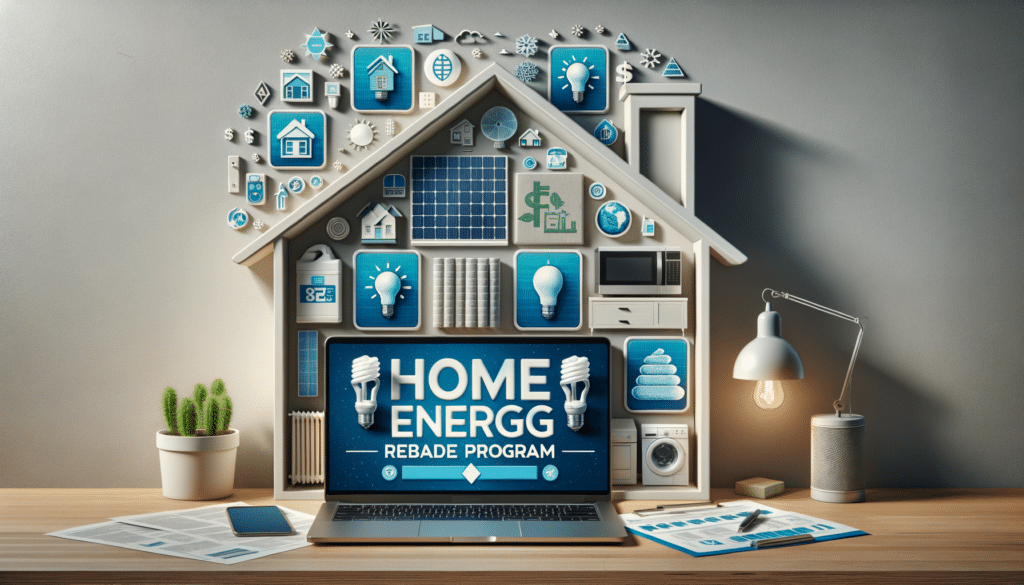Introduction to the Home Energy Rebate Program
The Home Energy Rebate Program is a pivotal initiative aimed at reducing energy consumption and promoting sustainable living. This program provides financial incentives to homeowners who invest in energy-efficient upgrades, thereby making it more affordable to reduce their carbon footprint. With the rising cost of energy and increasing awareness of environmental impacts, such programs are essential in driving the transition to more sustainable energy practices. By participating in the Home Energy Rebate Program, homeowners not only contribute to environmental conservation but also enjoy significant savings on their utility bills.
Benefits of the Home Energy Rebate Program
One of the most compelling aspects of the Home Energy Rebate Program is the array of benefits it offers to homeowners. Firstly, it provides a financial incentive to undertake energy-efficient home improvements. This can include anything from installing solar panels to upgrading insulation or replacing old appliances with energy-efficient models. The program aims to reduce the upfront cost burden, making these improvements accessible to a wider audience.
Additionally, the program contributes to long-term savings on energy bills. By improving the energy efficiency of a home, homeowners can significantly reduce their monthly utility expenses. This is particularly important as energy prices continue to rise. Moreover, energy-efficient homes tend to have higher property values, offering an added financial benefit.
Key benefits include:
- Financial incentives for energy-efficient home upgrades
- Long-term savings on utility bills
- Increased property value
- Contribution to environmental conservation
Eligibility and Application Process
Understanding the eligibility criteria and application process is crucial for homeowners interested in the Home Energy Rebate Program. Generally, eligibility is determined by factors such as the type of home, the location, and the specific energy-efficient upgrades being considered. Most programs require that the home be a primary residence, and certain upgrades may need to meet specific standards to qualify for rebates.
The application process typically involves several steps, including an initial assessment of the home’s current energy efficiency, selecting the appropriate upgrades, and submitting the necessary documentation. Homeowners may need to work with certified contractors to ensure that improvements meet program standards. Once the upgrades are completed, homeowners can submit proof of the improvements to receive their rebates.
Important points for eligibility:
- Primary residence requirement
- Specific standards for qualifying upgrades
- Collaboration with certified contractors
Comparing Different Home Energy Rebate Programs
While the Home Energy Rebate Program offers a range of benefits, it’s important to note that there are various programs available, each with its own set of criteria and incentives. Comparing these programs can help homeowners choose the one that best suits their needs. Some programs may focus on specific types of upgrades, such as solar installations, while others offer broader incentives for a range of improvements.
When comparing programs, homeowners should consider factors such as the maximum rebate amounts, the types of improvements covered, and any additional requirements or restrictions. Some programs may offer higher rebates for certain upgrades, while others might have more flexible eligibility criteria. Additionally, regional programs may offer incentives tailored to the specific energy needs and priorities of the area.
Factors to consider when comparing programs:
- Maximum rebate amounts
- Types of improvements covered
- Specific regional incentives
- Program flexibility and eligibility criteria
Future of Home Energy Rebates and Sustainable Living
The future of home energy rebates is closely tied to the broader movement towards sustainable living and energy independence. As technology advances, we can expect to see more innovative solutions and programs aimed at reducing energy consumption and promoting renewable energy sources. The Home Energy Rebate Program is likely to evolve, offering even more comprehensive incentives and support for homeowners committed to energy efficiency.
Furthermore, as environmental concerns continue to grow, government and private sector investments in energy-efficient technologies are expected to increase. This will likely lead to more robust and accessible rebate programs, encouraging even greater participation. The shift towards sustainable living is not just a trend but a necessity, and programs like the Home Energy Rebate Program play a critical role in facilitating this transition.
Key points for the future:
- Increased investment in energy-efficient technologies
- Evolution of rebate programs with more comprehensive incentives
- Growing importance of sustainable living





